- Home
- Dennis Lehane
The Given Day Page 3
The Given Day Read online
Page 3
Aeneus James said, “Just wondering why you still here, suh.”
Flack said, “It’s where a man stands when he’s on first, boy.”
Aeneus James looked exhausted suddenly, as if he’d just come home from a fourteen-hour workday to discover somebody’d stolen his couch.
Ruth thought: Oh, Jesus, no.
“You was out, suh.”
“Talking about, boy? I was safe.”
“Man was safe, nigger.” This from Ebby Wilson, standing beside Ruth all of a sudden. “Could see it from a mile off.”
Now some colored guys came over, asking what the holdup was.
Aeneus said, “Man says he was safe.”
“What?” Cameron Morgan ambled over from second. “You’ve got to be funning.”
“Watch your tone, boy.”
“I watch whatever I want.”
“That so?”
“I do believe.”
“Man was safe. With change.”
“That man was out,” Sticky Joe said softly. “No disrespect to you, Mr. Flack, but you were out, sir.”
Flack placed his hands behind his back and approached Sticky Joe. He cocked his head at the smaller man. He took a sniff of the air for some reason.
“You think I’m standing on first because I got confused? Huh?”
“No, sir, I don’t.”
“What do you think, then, boy?”
“Think you was out, sir.”
Everybody was at first base now—the nine guys from each team and the nine coloreds who’d taken seats after the new game had been drawn up.
Ruth heard “out.” He heard “safe.” Over and over. He heard “boy” and “nigger” and “nigra” and “field hand.” And then he heard someone call his name.
He looked over, saw Stuffy McInnis looking at him and pointing at the bag. “Gidge, you were closest. Flack says he’s safe. Ebby had a good eye on it, and he says he’s safe. You tell us, Babe. Safe or out?”
Babe had never seen so many angry colored faces this close. Eighteen of them. Big flat noses, lead-pipe muscles in their arms and legs, teardrops of sweat in their tight hair. He’d liked everything he’d seen in these ones, but he still didn’t like how they looked at you like they knew something about you that they weren’t going to tell. How those eyes sized you up fast and then went all droopy and faraway.
Six years back, major league baseball had had its first strike. The Detroit Tigers refused to play until Ban Johnson lifted a suspension on Ty Cobb for beating a fan in the stands. The fan was a cripple, had stumps for arms, no hands to defend himself, but Cobb had beaten him long after he was on the ground, applying his cleats to the poor bastard’s face and ribs. Still, Cobb’s teammates took his side and went on strike in support of a guy none of them even liked. Hell, everyone hated Cobb, but that wasn’t the point. The point was that the fan had called Cobb a “half-nigger,” and there wasn’t much worse you could call a white man except maybe “nigger lover” or just plain “nigger.”
Ruth had still been in reform school when he heard about it, but he understood the position of the other Tigers, no problem. You could jaw with a colored, even laugh and joke with one, maybe tip the ones you laughed with most a little something extra around Christmas. But this was still a white man’s society, a place built on concepts of family and an honest day’s work. (And what were these coloreds doing out in some field in the middle of a workday, playing a game when their loved ones were probably home going hungry?) When all was said and done, it was always best to stick with your own kind, the people you had to live with and eat with and work with for the rest of your life.
Ruth kept his gaze on the bag. He didn’t want to know where Luther was, risk looking up into that crowd of black faces and accidentally catching his eye.
“He was safe,” Ruth said.
The coloreds went nuts. They shouted and pointed at the bag and screamed, “Bullshit!” and that went on for some time, and then, as if they’d all heard a dog whistle none of the white men could hear, they stopped. Their bodies slackened, their shoulders lowered, they stared right through Ruth, as if they could see out the back of his head and Sticky Joe Beam said, “Awright, awright. That’s how we’re playing, then that’s how we’re playing.”
“That’s how we’re playing,” McInnis said.
“Yes, suh,” Sticky Joe said. “That’s clear now.”
And they all walked back and took their positions.
Babe sat on the bench and drank and felt soiled and found himself wanting to twist Ebby Wilson’s head off his neck, throw it on a stack with Flack’s beside it. Didn’t make no sense—he’d done the right thing by his team—but he felt it all the same.
The more he drank, the worse he felt, and by the eighth inning, he considered what would happen if he used his next at bat to tank. He’d switched places with Whiteman by this point, was playing first. Luther Laurence waited on deck as Tyrell Hawke stood in the box, and Luther looked across at him like he was just another white man now, giving him those nothing-eyes you saw in porters and shine boys and bell boys, and Babe felt a shriveling inside of himself.
Even with two more disputed tags (and a child could guess who won the disputes) and a long foul ball the major leaguers deemed a home run, they were still down to the coloreds by a score of 9—6 in the bottom of the ninth when the pride of the National and American Leagues started playing like the pride of the National and American Leagues.
Hollocher ripped one down the first base line. Then Scott punched one over the third baseman’s head. Flack went down swinging. But McInnis tore one into shallow right, and the bases were loaded, one out, George Whiteman coming to the plate, Ruth on deck. The infield was playing double-play depth, and Sticky Joe Beam wasn’t throwing nothing George could go long on, and Babe found himself praying for one thing he’d never prayed for in his life: a double-play so he wouldn’t have to bat.
Whiteman feasted on a sinker that hung too long, and the ball roared off into space and then hooked a right turn somewhere just past the infield, hooked hard and fast and foul. Obviously foul. Then Sticky Joe Beam struck him out on two of the most vicious fastballs Ruth had seen yet.
Babe stepped up to the plate. He added up how many of their six runs had come from clean baseball and he came up with three. Three. These coloreds who nobody knew, out in some raggedy field in Shit-heel, Ohio, had held some of the best players in the known world to three measly runs. Hell, Ruth himself was hitting one-for-three. And he’d been trying. And it wasn’t just Beam’s pitching. No. The expression was: Hit ’em where they ain’t. But these colored boys were everywhere. You thought there was a gap, the gap vanished. You hit something no mortal man could chase down, and one of these boys had it in his glove and wasn’t even winded.
If they hadn’t cheated, this would be one of the great moments of Ruth’s life—facing off against some of the best players he’d ever come across with the game in his hands, bottom of the ninth, two out, three on. One swing, and he could win it all.
And he could win it all. He’d been studying Sticky Joe for a while now, and the man was tired, and Ruth had seen all his pitches. If they hadn’t cheated, the air Ruth sucked through his nostrils right now would be pure cocaine.
Sticky Joe’s first pitch came in too loose and too fat and Ruth had to time his swing just right to miss it. He missed it big, trying to sell it, and even Sticky Joe looked surprised. The next one was tighter, had some corkscrew in it, and Ruth fouled it back. The one after that was in the dirt, and the one that followed was up by his chin.
Sticky Joe took the ball back and stepped off the mound for a moment and Ruth could feel all the eyes on him. He could see the trees behind Luther Laurence and he could see Hollocher and Scott and McInnis on their bases, and he thought how pretty it would have been if it had been clean, if the next pitch was one he could, in good conscience, send toward God in heaven. And maybe…
He held up a hand and stepped out of the box.
It was just a game, wasn’t it? That’s what he’d told himself when he decided to tank. Just a game. Who cared if he lost one silly ball game?
But the reverse was true as well. Who cared if he won? Would it matter tomorrow? Of course not. It wouldn’t affect anyone’s life. Now, right now, it was a case of two down, three on, bottom of the ninth.
If he serves me a meatball, Ruth decided as he stepped back to the box, I’m going to eat. How can I resist? Those men on their bases, this bat in my hand, the smell of dirt and grass and sun.
It’s a ball. It’s a bat. It’s nine men. It’s a moment. Not forever. Just a moment.
And here was that ball, coming in slower than it should have, and Ruth could see it in the old Negro’s face. He knew it as soon as it left his hand: it was fat.
Babe thought about whiffing, sliding over it, doing the fair thing.
The train whistle blew then, blew loud and shrill and up through the sky, and Ruth thought, That’s a sign, and he planted his foot and swung his bat and heard the catcher say, “Shit,” and then—that sound, that gorgeous sound of wood against cowhide and that ball disappeared into the sky.
Ruth trotted a few yards down the line and stopped because he knew he’d gotten under it.
He looked out and saw Luther Laurence looking at him, just for a split second, and he felt what Luther knew: that he’d tried to hit a home run, a grand slam. That he’d tried to take this game, unfairly played, away from those who’d played it clean.
Luther’s eyes left Ruth’s face, slid off it in such a way that Ruth knew he’d never feel them again. And Luther looked up as he faded into position under the ball. He set his feet. He raised his glove over his head. And that was it, that was the ball game, because Luther was right under it.
But Luther walked away.
Luther lowered his glove and started walking toward the infield and so did the right fielder and so did the left fielder and that ball plopped to the grass behind them all and they didn’t even turn to look at it, just kept walking, and Hollocher crossed home, but there was no catcher there waiting. The catcher was walking toward the bench along third base and so was the third baseman.
Scott reached home, but McInnis stopped running at third, just stood there, looking at the coloreds ambling toward their bench like it was the bottom of the second instead of the bottom of the ninth. They congregated there and stuffed their bats and gloves into two separate canvas bags, acting like the white men weren’t even there. Ruth wanted to cross the field to Luther, to say something, but Luther never turned around. Then they were all walking toward the dirt road behind the field, and he lost Luther in the sea of coloreds, couldn’t tell if he was the guy up front or on the left and Luther never looked back.
The whistle blew again, and none of the white men had so much as moved, and even though the coloreds had seemed to walk slow, they were almost all off the field.
Except Sticky Joe Beam. He came over and picked up the bat Babe had used. He rested it on his shoulder and looked into Babe’s face.
Babe held out his hand. “Great game, Mr. Beam.”
Sticky Joe Beam gave no indication he saw Babe’s hand.
He said, “Believe that’s your train, suh,” and walked off the field.
Babe went back onto the train. He had a drink at the bar.
The train left Ohio and hurtled through Pennsylvania. Ruth sat by himself and drank and looked out at Pennsylvania in all its scrabbled hills and dust. He thought of his father who’d died two weeks ago in Baltimore during a fight with his second wife’s brother, Benjie Sipes. Babe’s father got in two punches and Sipes only got in one, but it was that one that counted because his father’s head hit the curb and he died at University Hospital a few hours later.
The papers made a big deal of it for a couple of days. They asked for his opinion, for his feelings. Babe said he was sorry the man was dead. It was a sad thing.
His father had dumped him in reform school when he was eight. Said he needed to learn some manners. Said he was tired of trying to teach him how to mind his mother and him. Said some time at Saint Mary’s would do him good. Said he had a saloon to run. He’d be back to pick him up when he learned to mind.
His mother died while he was in there.
It was a sad thing, he’d told the papers. A sad thing.
He kept waiting to feel something. He’d been waiting for two weeks.
In general, the only time he felt anything, outside of the self-pity he felt when very drunk, was when he hit a ball. Not when he pitched it. Not when he caught it. Only when he hit it. When the wood connected with the cowhide and he swiveled his hips and pivoted his shoulders and the muscles in his thighs and calves tightened and he felt the surge of his body as it finished the swing of the black bat and the white ball soared faster and higher than anything on the planet. That’s why he’d changed his mind and taken the swing this afternoon, because he’d had to. It was too fat, too pure, just sitting there. That’s why he’d done it. That’s all there was to that story. That’s all there was.
He got in a poker game with McInnis and Jones and Mann and Hollocher, but everyone kept talking about the strike and the war (no one mentioned the game; it was as if they’d all agreed it never happened), so he took a long, long nap and when he got up, they were almost through New York and he had a few more drinks to cut the sludge in his brain, and he took Harry Hooper’s hat off his head while he was sleeping and put his fist through the top of it and then placed it back on Harry Hooper’s head and someone laughed and someone else said, “Gidge, don’t you respect nothing?” So he took another hat, this one off Stu Springer, head of the Cubs’ sales department, and he punched a hole in that one and soon half the car was flinging hats at him and egging him on and he climbed up on top of the seats and crawled from one to the next making “hoo hoo hoo” sounds like an ape and feeling a sudden, unexplainable pride that welled up through his legs and arms like stalks of wheat gone mad with the growing, and he shouted, “I am the ape man! I am Babe Fucking Ruth. I will eat you!”
Some people tried to pull him down, some people tried to calm him, but he jumped off the seat backs and did a jig in the aisle and he grabbed some more hats and he flung some and punched holes in a few more and people were clapping, people were cheering and whistling. He slapped his hands together like a wop’s monkey and he scratched his ass and went “hoo hoo hoo,” and they loved it, they loved it.
Then he ran out of hats. He looked back down the aisle. They covered the floor. They hung from the luggage racks. Pieces of straw stuck to a few windows. Ruth could feel the litter of them in his spine, right at the base of his brain. He felt addled and elated and ready to take on the ties. The suits. The luggage.
Ebby Wilson put his hand on his chest. Ruth wasn’t even sure where he’d come from. He saw Stuffy standing up in his seat, raising a glass of something to him, shouting and smiling, and Ruth waved.
Ebby Wilson said, “Make me a new one.”
Ruth looked down at him. “What?”
Ebby spread his hands, reasonable. “Make me a new hat. You broke ’em up, now make me another one.”
Someone whistled.
Ruth smoothed the shoulders of Wilson’s suit jacket. “I’ll buy you a drink.”
“Don’t want a drink. I want my hat.”
Ruth was about to say “Fuck your hat,” when Ebby Wilson pushed him. It wasn’t much of a push, but the train went into a turn at the same time, and Ruth felt it buckle, and he smiled at Wilson, and then decided to punch him instead of insult him. He threw the punch, saw it coming in Ebby Wilson’s eyes, Wilson not so smug anymore, not so concerned with his hat, but the train buckled again, and the train shimmied and Ruth felt the punch go wide, felt his whole body lurch to the right, felt a voice in his heart say, “This is not you, Gidge. This is not you.”
His fist hit the window instead. He felt it in his elbow, felt it in his shoulder and the side of his neck and the hollow just below his ear. He felt
the sway of his belly as a public spectacle and he felt fat and orphaned again. He dropped into the empty seat and sucked air through his teeth and cradled his hand.
Luther Laurence and Sticky Joe and Aeneus James were probably sitting on a porch somewhere now, feeling the night heat, passing a jar. Maybe they were talking about him, about the look on his face when he saw Luther walking away from that ball as it fell through the air. Maybe they were laughing, replaying a hit, a pitch, a run.
And he was out here, in the world.
I slept through New York, Babe thought as they brought a bucket of ice and placed his hand in it. And then he remembered this train didn’t run past Manhattan, only Albany, but he still felt a loss. He’d seen it a hundred times, but he loved to look at it, the lights, the dark rivers that circled it like carpet, the limestone spires so white against the night.
He pulled his hand from the ice and looked at it. His pitching hand. It was red and swelling up and he couldn’t make a fist.
“Gidge,” someone called from the back of the car, “what you got against hats?”
Babe didn’t answer. He looked out the window, at the flat scrub of Springfield, Massachusetts. He placed his forehead against the window to cool it and saw his reflection and the reflection of the land, the two of them intertwined.
He raised his swollen hand to the glass and the land moved through it, too, and he imagined it healing the aching knuckles and he hoped he hadn’t broken it. Over something as silly as hats.
He imagined finding Luther on some dusty street in some dusty town and buying him a drink and apologizing and Luther would say, Don’t you worry about it none, Mr. Ruth, suh, and tell him another tale about Ohio cacti.
But then Ruth pictured those eyes of Luther’s, giving nothing away but a sense that he could see inside you and he didn’t approve of what was there, and Ruth thought, Fuck you, boy, and your approval. I don’t need it. Hear me?
I don’t need it.
He was just getting started. He was ready to bust wide open. He could feel it. Big things. Big things were coming. From him. From everywhere. That was the feeling he got lately, as if the whole world had been held in a stable, him included. But soon, soon it was going to bust out all over the place.

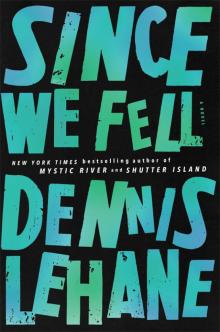 Since We Fell
Since We Fell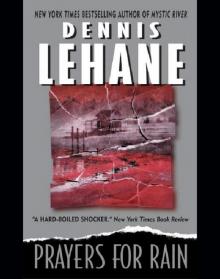 Prayers for Rain
Prayers for Rain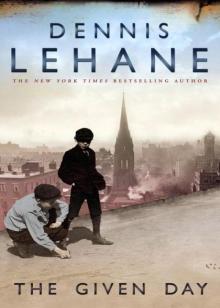 The Given Day
The Given Day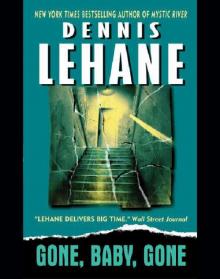 Gone, Baby, Gone
Gone, Baby, Gone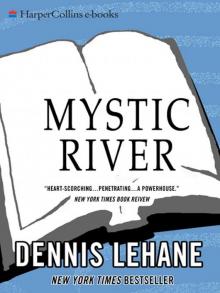 Mystic River
Mystic River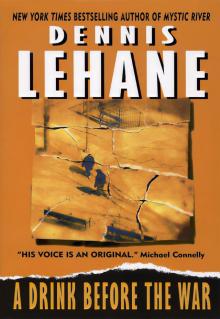 A Drink Before the War
A Drink Before the War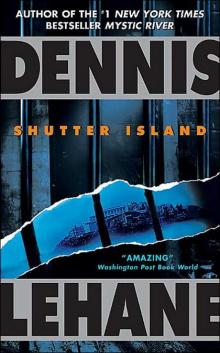 Shutter Island
Shutter Island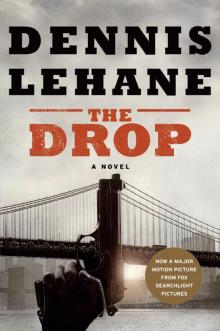 The Drop
The Drop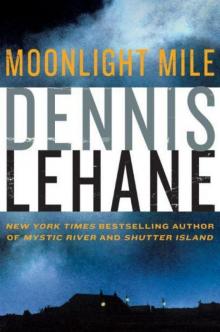 Moonlight Mile
Moonlight Mile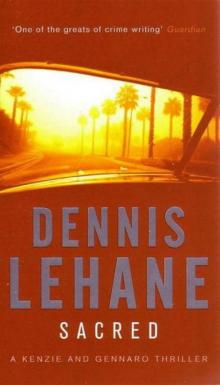 Sacred
Sacred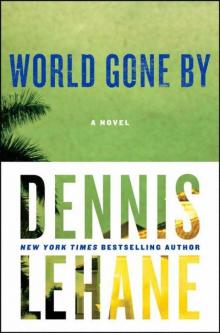 World Gone By
World Gone By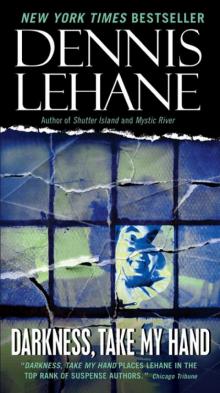 Darkness, Take My Hand
Darkness, Take My Hand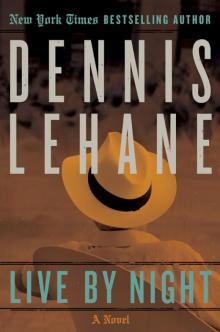 Live by Night
Live by Night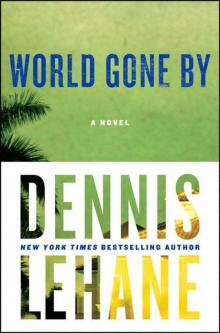 World Gone By: A Novel
World Gone By: A Novel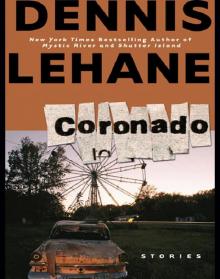 Coronado
Coronado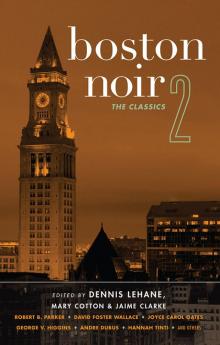 Boston Noir 2
Boston Noir 2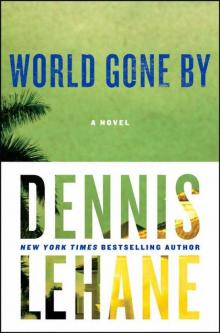 World Gone By: A Novel (Joe Coughlin Series)
World Gone By: A Novel (Joe Coughlin Series)